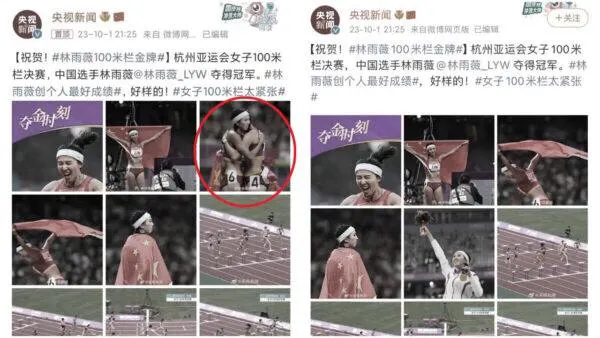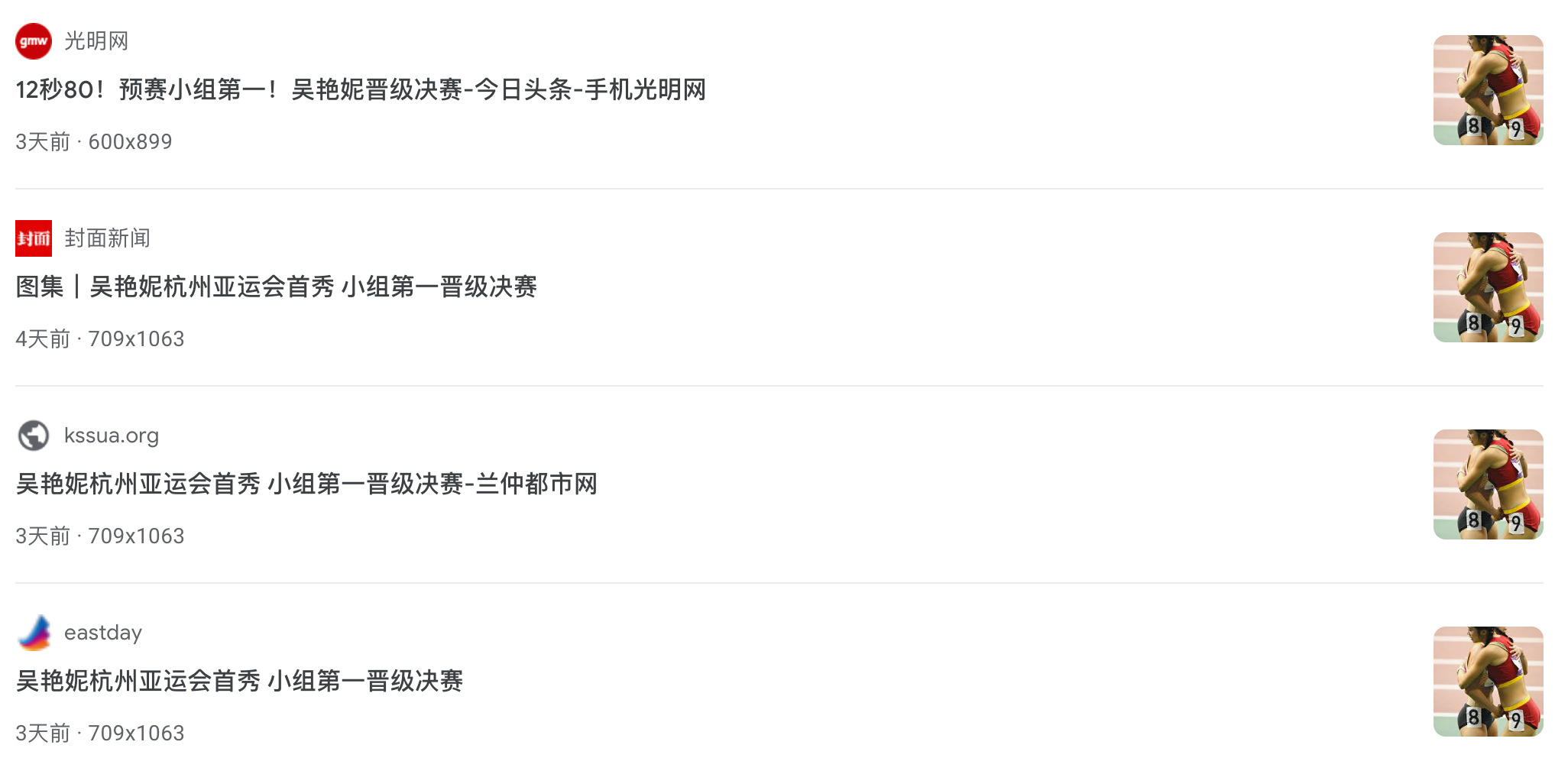A hug between two Chinese athletes after the women’s 100m hurdles finals at the Hangzhou Asian Games has become the second Tiananmen Massacre-related censorship controversy of the Games.
At the finals on October 1, hurdlers Lin Yuwei and Wu Yanni ran in lanes six and four, respectively. A photograph of the pair hugging after the race framed their short numbered bibs to read “64,” a tightly censored allusion to June 4th, 1989—the day of violence that ended that spring and summer’s mass democracy movement. State-run and mainstream Chinese media were at first apparently oblivious to the unintentional symbolism of the photo of Lin and Wu’s hug, publishing it widely across social media and official news sites. China Central Television News, the top state-broadcaster, included the photo in a Weibo collage it shared to its 132 million followers. Xinhua, the top state-media outlet, featured the photograph prominently in an initial write-up of the women’s final. CCTV News later removed the photo from the collage and Xinhua seemingly took down the original article, an indication that both outlets were alerted to the image’s potential political symbolism. [Updated at 20:51 on Oct 5, 2023: The Xinhua report remains online and still includes the photo; its failure to load during testing appears to have been the result of the site’s handling of secure https urls.]


Weibo censored posts that shared the image. Media outlets soon began sharing different angles of the hug that obscured Lin and Wu’s lane numbers. Despite censorship, the photograph sparked Weibo users to reflect on the symbolism of the photograph and the rise of inadvertent Tiananmen remembrances:
阡陌正飛塵:White headbands, a tight hug, red clothing, two numbers affixed to our national flags … this photograph offers a lot of food for thought. Good work, photographer.
祖宗祖宗祖宗祖宗祖宗祖宗:Only those who’ve committed unconscionable acts fear the ghosts of history.
选择tnd大电视机:If they wouldn’t censor it, fewer people would know of it. But from Li Jiaqi’s livestream to the Asian Games, I’m awestruck by their [censorship] countermeasures.
壶细茎:Haha, what Li Jiaqi Paradox? [Chinese]
After photographs of the “64 hug” went viral and were censored, netizens discovered that after the semi-finals race, Wu Yanni, who had raced in lane 9, hugged a Korean competitor, who raced in lane 8. A photograph of the hug also framed the competitors’ short numbered bibs to read “89,” the year of the June 4th Massacre. A number of media outlets, including state-run organizations, used that image in the thumbnail of WeChat articles.

Remarkably, this is the second “64” incident of the Asian Games. In the run-up to the opening ceremony in mid-September, Party mouthpiece People’s Daily published a video titled “A Literary Exploration of Hangzhou” to Weibo. It highlighted two Song Dynasty poems with charged political subtexts. The first poem references “June” and “four seasons,” and has often been used by dissidents to refer to June 4th while eluding censorship. The second poem is a sarcastic attack on corrupt politicians drinking away in Hangzhou while neglecting their duties. People’s Daily subsequently took down the video and censors erased mention of it across Weibo—much to the amusement of online observers.






